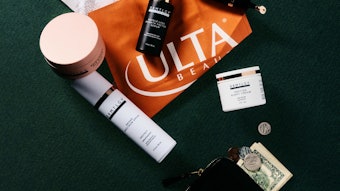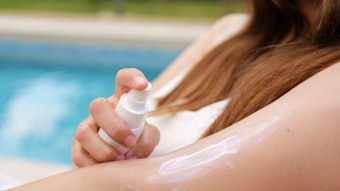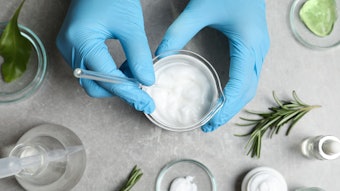Shiseido has developed an ingredient for improving skin quality. The company discovered that the protein serpin b3 is a factor in blocking the barrier function that protects the human body from external stresses such as dryness and UV rays, and has developed the amino acid derivative 1-piperidine propionic acid, which effectively inhibits the production of this protein.
According to the company, the stratum corneum (SC) possesses a barrier function to protect skin from a number of external stresses such as dryness and UV rays. While a normal SC matures by its formation associated with nuclei digestion of epidermal cells, the epidermal barrier function is impaired in cases where the nuclei are present in corneocytes. Although this phenomenon previously has been known, what factor is involved in nuclei digestion and its mechanism has long remained unexplained; therefore, no effective method of dealing with this issue has been found.
Shiseido clarified the mechanism of nuclei digestion and discovered that serpin b3 is a factor in inhibiting the formation of a normal SC. Although serpin b3 is seldom observed in a normal epidermis, it is markedly increased in the epidermis of rough skin. As a result of biochemical analysis, it was shown that increased serpin b3 inhibits nuclei digestion of corneocytes and significantly disturbs SC formation.
The amount of serpin b3 varies greatly according to each person. By analyzing the epidermis of approximately 2,000 individuals around the world, the company found there is a strong correlation between the amount of serpin b3 and the corneocytes with nuclei as well as the amount of serpin b3 and the epidermal barrier function. In addition, the amount of serpin b3 also correlates with the skin’s susceptibility to external stresses. The company discovered that 1-piperidine-propionic acid alanine derivative, one type of amino acid, has an inhibitory effect on the production of serpin b3.
When UV rays are irradiated on normal skin or a skin model cultivated from skin cells, a significant increase of serpin b3 as well as abnormalities such as remaining nuclei in corneocytes are observed. Conversely, when UV rays are irradiated on a skin model preliminarily cultivated with 1-piperidine propionic acid, a significant increase of serpin b3 or remaining nuclei in corneocytes are not observed. Moreover, on human skin, 1-piperidine-propionic acid suppresses the production of serpin b3 and results in improvement of the barrier function, moisture retention ability and skin texture and smoothness.The company suggests that application of 1-piperidine-propionic acid leads to improved skin quality.










